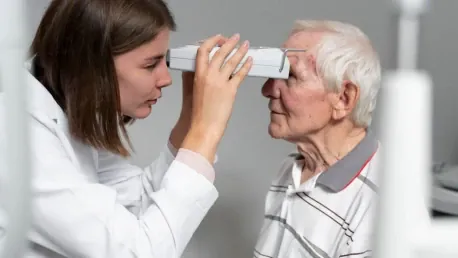GC Biopharma and Novelty Nobility have announced a promising partnership aimed at developing a novel treatment for geographic atrophy (GA), a severe form of dry age-related macular degeneration (AMD). This condition leads to retinal damage and eventual blindness, making it a significant health concern for the aging population. The collaboration will leverage Novelty Nobility’s expertise in developing antibody-based therapeutics, particularly their success in treating wet AMD, to address the urgent need for safer and more effective treatments for GA. By combining resources and expertise, both companies aim to make a breakthrough in combating this debilitating disease.
The partnership will see both firms working closely through the entire drug development lifecycle, starting with the strategic selection of proteins involved in the pathology of GA. Sang-gyu Park, CEO of Novelty Nobility, emphasized the firm’s innovative advancements in wet AMD treatments using proprietary antibodies. He expressed optimism about applying their expertise to the challenging field of GA. Meanwhile, Jaewook Jung, the Head of R&D at GC Biopharma, highlighted the synergistic potential from merging their strengths in antibody therapies and protein therapeutics. The collaboration is expected to yield significant advancements in the treatment landscape for retinal diseases.
The overarching goal of this collaboration is not only to innovate within the field of retinal diseases but also to enhance existing therapeutic options, thereby potentially transforming the lives of those affected by GA. This partnership aligns with GC Biopharma’s broader strategy of diversifying its research portfolio beyond plasma derivatives and rare diseases to include new therapeutic areas. By integrating the capabilities of both companies, the partnership aims to develop a next-generation treatment for GA that prioritizes both efficacy and safety. This endeavor marks a significant step forward in the global effort to find more effective treatments for age-related visual impairments.









